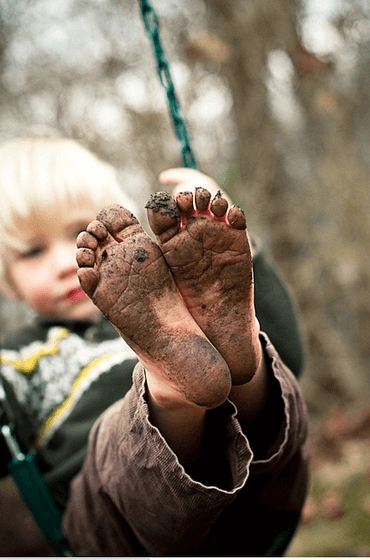1
Falou mais o Senhor a Moisés e a Arão, dizendo:
2
Quando um homem tiver na pele da sua carne inchação, ou pústula, ou mancha lustrosa, e esta se tornar na sua pele como praga de lepra, então será levado a Arão o sacerdote, ou a um de seus filhos, os sacerdotes,
3
e o sacerdote examinará a praga na pele da carne. Se o pêlo na praga se tiver tornado branco, e a praga parecer mais profunda que a pele, é praga de lepra; o sacerdote, verificando isto, o declarará imundo.
4
Mas, se a mancha lustrosa na sua pele for branca, e não parecer mais profunda que a pele, e o pêlo não se tiver tornado branco, o sacerdote encerrará por sete dias aquele que tem a praga.
5
Ao sétimo dia o sacerdote o examinará; se a praga, na sua opinião, tiver parado e não se tiver estendido na pele, o sacerdote o encerrará por outros sete dias.
6
Ao sétimo dia o sacerdote o examinará outra vez; se a praga tiver escurecido, não se tendo estendido na pele, o sacerdote o declarará limpo; é uma pústula. O homem lavará as suas vestes, e será limpo.
7
Mas se a pústula se estender muito na pele, depois de se ter mostrado ao sacerdote para a sua purificação, mostrar-se-á de novo ao sacerdote,
8
o qual o examinará; se a pústula se tiver estendido na pele, o sacerdote o declarará imundo; é lepra.
9
Quando num homem houver praga de lepra, será ele levado ao sacerdote,
10
o qual o examinará; se houver na pele inchação branca que tenha tornado branco o pêlo, e houver carne viva na inchação,
11
lepra inveterada é na sua pele. Portanto, o sacerdote o declarará imundo; não o encerrará, porque imundo é.
12
Se a lepra se espalhar muito na pele, e cobrir toda a pele do que tem a praga, desde a cabeça até os pés, quanto podem ver os olhos do sacerdote,
13
este o examinará; e, se a lepra tiver coberto a carne toda, declarará limpo o que tem a praga; ela toda se tornou branca; o homem é limpo.
14
Mas no dia em que nele aparecer carne viva será imundo.
15
Examinará, pois, o sacerdote a carne viva, e declarará o homem imundo; a carne viva é imunda; é lepra.
16
Ou, se a carne viva mudar, e ficar de novo branca, ele virá ao sacerdote,
17
e este o examinará; se a praga se tiver tornado branca, o sacerdote declarará limpo o que tem a praga; limpo está.
18
Quando também a carne tiver na sua pele alguma úlcera, se esta sarar,
19
e em seu lugar vier inchação branca ou mancha lustrosa, tirando a vermelho, mostrar-se-á ao sacerdote,
20
e este a examinará; se ela parecer mais profunda que a pele, e o pêlo se tiver tornado branco, o sacerdote declarará imundo o homem; é praga de lepra, que brotou na úlcera.
21
Se, porém, o sacerdote a examinar, e nela não houver pêlo branco e não estiver mais profunda que a pele, mas tiver escurecido, o sacerdote encerrará por sete dias o homem.
22
Se ela se estender na pele, o sacerdote o declarará imundo; é praga.
23
Mas se a mancha lustrosa parar no seu lugar, não se estendendo, é a cicatriz da úlcera; o sacerdote, pois, o declarará limpo.
24
Ou, quando na pele da carne houver queimadura de fogo, e a carne viva da queimadura se tornar em mancha lustrosa, tirando a vermelho ou branco,
25
o sacerdote a examinará, e se o pêlo na mancha lustrosa se tiver tornado branco, e ela parecer mais profunda que a pele, é lepra; brotou na queimadura; portanto o sacerdote o declarará imundo; é praga de lepra.
26
Mas se o sacerdote a examinar, e na mancha lustrosa não houver pêlo branco, nem estiver mais profunda que a pele, mas tiver escurecido, o sacerdote o encerrará por sete dias.
27
Ao sétimo dia o sacerdote o examiará. Se ela se houver estendido na pele, o sacerdote o declarará imundo; é praga de lepra.
28
Mas se a mancha lustrosa tiver parado no seu lugar, não se estendendo na pele, e tiver escurecido, é a inchação da queimadura; portanto o sacerdote o declarará limpo; porque é a cicatriz da queimadura.
29
E quando homem (ou mulher) tiver praga na cabeça ou na barba,
30
o sacerdote examinará a praga, e se ela parecer mais profunda que a pele, e nela houver pêlo fino amarelo, o sacerdote o declarará imundo; é tinha, é lepra da cabeça ou da barba.
31
Mas se o sacerdote examinar a praga da tinha, e ela não parecer mais profunda que a pele, e nela não houver pêlo preto, o sacerdote encerrará por sete dias o que tem a praga da tinha.
32
Ao sétimo dia o sacerdote examinará a praga; se a tinha não se tiver estendido, e nela não houver pêlo amarelo, nem a tinha parecer mais profunda que a pele,
33
o homem se rapará, mas não rapará a tinha; e o sacerdote encerrará por mais sete dias o que tem a tinha.
34
Ao sétimo dia o sacerdote examinará a tinha; se ela não se houver estendido na pele, e não parecer mais profunda que a pele, o sacerdote declarará limpo o homem; o qual lavará as suas vestes, e será limpo.
35
Mas se, depois da sua purificação, a tinha estender na pele,
36
o sacerdote o examinará; se a tinha se tiver estendido na pele, o sacerdote não buscará pêlo amarelo; o homem está imundo.
37
Mas se a tinha, a seu ver, tiver parado, e nela tiver crescido pêlo preto, a tinha terá sarado; limpo está o homem; portanto o sacerdote o declarará limpo.
38
Quando homem (ou mulher) tiver na pele da sua carne manchas lustrosas, isto é, manchas lustrosas brancas,
39
o sacerdote as examinará; se essas manchas lustrosas forem brancas tirando a escuro, é impigem que brotou na pele; o homem é limpo.
40
Quando a cabeça do homem se pelar, ele é calvo; contudo é limpo.
41
E, se a frente da sua cabeça se pelar, ele é meio calvo; contudo é limpo.
42
Mas se na calva, ou na meia calva, houver praga branca tirando a vermelho, é lepra que lhe está brotando na calva ou na meia calva.
43
Então o sacerdote o examinará, e se a inchação da praga na calva ou na meia calva for branca tirando a vermelho, como parece a lepra na pele da carne,
44
leproso é aquele homem, é imundo; o sacerdote certamente o declarará imundo; na sua cabeça está a praga.
45
Também as vestes do leproso, em quem está a praga, serão rasgadas; ele ficará com a cabeça descoberta e de cabelo solto, mas cobrirá o bigode, e clamará: Imundo, Imundo.
46
Por todos os dias em que a praga estiver nele, será imundo; imundo é; habitará só; a sua habitação será fora do arraial.
47
Quando também houver praga de lepra em alguma vestidura, seja em vestidura de lã ou em vestidura de linho,
48
quer na urdidura, quer na trama, seja de linho ou seja de lã; ou em pele, ou em qualquer obra de pele;
49
se a praga na vestidura, quer na urdidura, quer na trama, ou na pele, ou em qualquer coisa de pele, for verde ou vermelha, é praga de lepra, pelo que se mostrará ao sacerdote;
50
o sacerdote examinará a praga, e encerrará por sete dias aquilo que tem a praga.
51
Ao sétimo dia examinará a praga; se ela se houver estendido na vestidura, quer na urdidura, quer na trama, ou na pele, seja qual for a obra em que se empregue, a praga é lepra roedora; é imunda.
52
Pelo que se queimará aquela vestidura, seja a urdidura ou a trama, seja de lã ou de linho, ou qualquer obra de pele, em que houver a praga, porque é lepra roedora; queimar-se-á ao fogo.
53
Mas se o sacerdote a examinar, e ela não se tiver estendido na vestidura, seja na urdidura, seja na trama, ou em qualquer obra de pele,
54
o sacerdote ordenará que se lave aquilo, em que está a praga, e o encerrará por mais sete dias.
55
O sacerdote examinará a praga, depois de lavada, e se ela não tiver mudado de cor, nem se tiver estendido, é imunda; no fogo a queimarás; é praga penetrante, seja por dentro, seja por fora.
56
Mas se o sacerdote a examinar, e a praga tiver escurecido, depois de lavada, então a rasgará da vestidura, ou da pele, ou da urdidura, ou da trama;
57
se ela ainda aparecer na vestidura, seja na urdidura, seja na trama, ou em qualquer coisa de pele, é lepra brotante; no fogo queimarás aquilo em que há a praga.
58
Mas a vestidura, quer a urdidura, quer a trama, ou qualquer coisa de pele, que lavares, e de que a praga se retirar, se lavará segunda vez, e será limpa.
59
Esta é a lei da praga da lepra na vestidura de lã, ou de linho, quer na urdidura, quer na rama, ou em qualquer coisa de pele, para declará-la limpa, ou para declará-la imunda.








